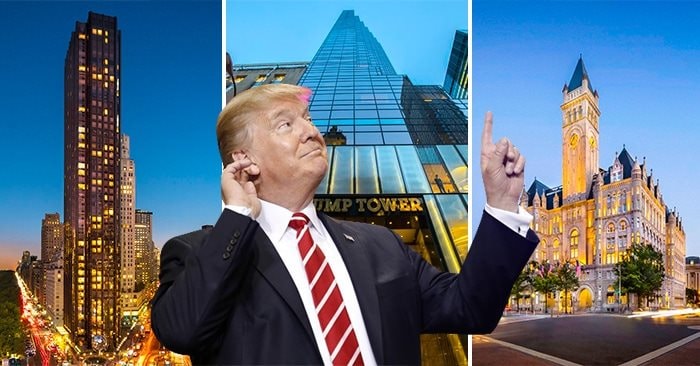
As political and economic instability rises in the US, particularly during Donald Trump’s second term as President, Americans are witnessing a surge in demand for overseas real estate and residency.
Driven by the concept of “investment migration,” this trend is becoming an essential safeguard against the unpredictable developments back home. From the increased demand for second passports to owning properties in stable destinations, Americans, especially high-net-worth families, are shifting their mindset to cope with the turmoil.
According to Basil Mohr-Elzeki, Regional Director for North America at Henley & Partners, a leading advisory firm on residency and citizenship by investment, the demand for second passports or foreign residency is soaring and is expected to continue booming by 2025.
The firm’s data shows that in 2024, American client inquiries surged by over 1,000% compared to 2019, accounting for approximately 25% of all applications—a figure nearly equal to the total applications from the next four largest citizenship groups combined. This reflects a clear shift in mindset, as investment migration becomes a strategy for protecting assets and securing a stable future.
The UK, Australia, and Portugal have emerged as favored destinations, with real estate agents in these countries recording a significant increase in American clients seeking residential options.

Americans are anxious about the political unrest under President Trump.
Australia, in particular, has become a top choice due to its stable political environment and robust economy. Ken Jacobs, a Sydney-based real estate broker, notes, “Since President Trump’s re-election, we’ve seen a growing number of Americans interested in premium Australian real estate.”
However, due to stringent foreign investment regulations, Americans can only purchase new properties, new apartments, or house-and-land packages and not existing real estate. This has prompted many to consider long-term relocation.
Qi Chen, CEO and founder of the housing portal OpenLot.com.au, confirms this trend: “We’ve seen a wave of new users from the US after the election.” Specifically, from January to February, the number of active users from the US on the website increased by 42%, while page views surged by 91%. “New properties are a valid option for foreign buyers under Australian law,” Chen emphasizes.
In Portugal, interest from Americans has also skyrocketed. Luiz Felipe Maia, Director of Maia International Properties, a brokerage firm in Lisbon, shares, “Since the US elections in November 2024, the number of inquiries from Americans about Portuguese real estate has doubled, from 30-50 to hundreds per month.” The company is currently working with 15 potential clients from the US, expected to arrive in Lisbon next month to inspect properties.
“California is the main market, but we’re also seeing interest from Seattle and Arizona,” Maia says. Notably, Florida—where Trump won by a landslide—has not recorded any inquiries.
This increased demand has even impacted the aviation industry, with TAP Air Portugal adding routes from Los Angeles to Lisbon and from Boston to Porto. “It feels like the wave from Hong Kong in 2019,” Maia compares, recalling the time when Hong Kongers rushed to buy Portuguese real estate amid social unrest.
The UK is no exception, according to David Johnson, CEO of the real estate advisory firm Inhous: “We’re witnessing a clear surge from Americans looking to buy or rent property.” This goes beyond real estate, as applications for British citizenship from Americans have also surged. In the last quarter of 2024, the UK Home Office received over 1,700 applications—the highest in over two decades. For the entire year, a total of 6,100 applications were submitted, a more than 25% increase from 2023.
This trend is not unique to Americans. Kashif Ansari, co-founder and CEO of Juwai IQI, notes, “Chinese nationals in overseas centers like Malaysia have also tripled since borders reopened in 2023.” Currently, approximately 12 million mainland Chinese and Hong Kongers and 5 million native Americans live abroad, reflecting a significant shift in global asset and residency patterns.
















